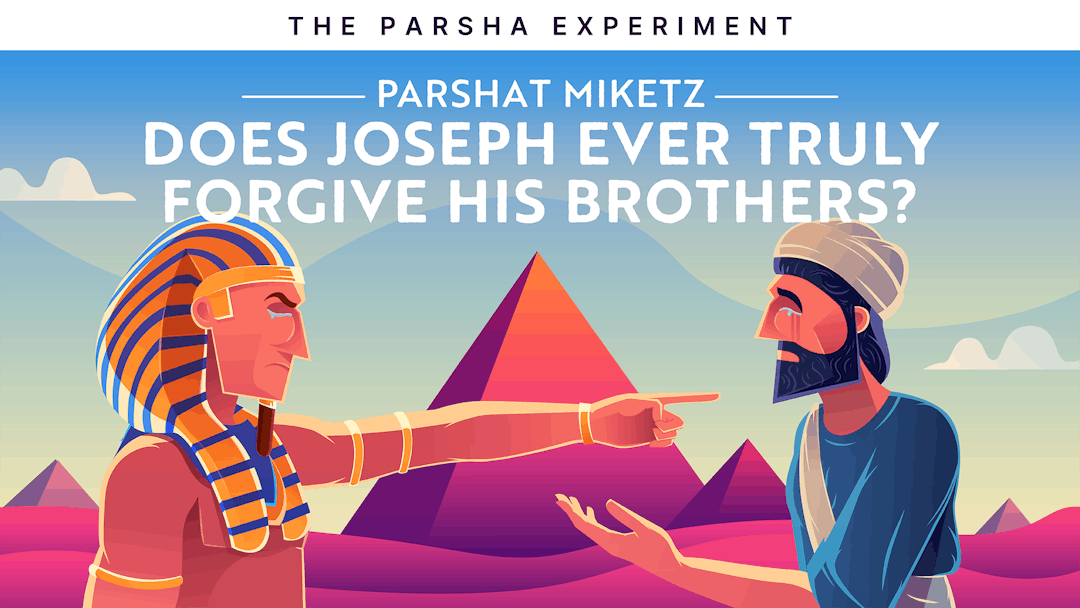Start your free trial today to unlock the full library and enjoy unlimited and uninterrupted access.
Get StartedFrom Pit To Palace: The Meaning Of Joseph’s Groundhog Day
The Untold Story Of Joseph's Redemption
Parshat Miketz continues the epic Joseph saga. Joseph is released from prison and quickly becomes second in command to Pharaoh, making him one of the most powerful men in the world. The transition from prisoner to minister is jarring, a rags-to-riches story fit for the tabloids.
The story makes you wonder: was this some great coincidence, a bizarre twist of fate? Or did Joseph do something to earn this great station and finally leave his woes behind for good?
Join Rabbi Fohrman as he finds echoes of Joseph’s first misfortune in all his later trials, and uncovers an evolution in Joseph’s character that may explain his unfathomable rise to power, from pit to palace.
Click here to watch the epic story leading up to this video: The ‘Scandalous’ Backstory of Boaz and Ruth
Want to watch the full video for free?
Enter your email and we’ll send you a link to watch the full series free.
What is Aleph Beta?
Aleph Beta is a unique kind of Torah library. Led by our founder, Rabbi David Fohrman, we are dedicated to high-level, textual Torah learning for adults that is intellectually and spiritually sophisticated, that enlivens your Jewish practice and helps you forge a deeper connection to God. Whether you’ve been learning in yeshiva for years or you’re just beginning your Torah journey, you’re sure to find something meaningful and surprising waiting for you here.
Browse our library of over 1,000 beautifully produced animated videos, podcasts, deep dive courses, and printable guides. Topics include the weekly parsha, Jewish holidays & fast days, laws & mitzvot, prayers, relationships, big philosophical ideas and more. Have something to say at the Shabbos table that will amaze your family and guests and bring deep meaning into their lives.











